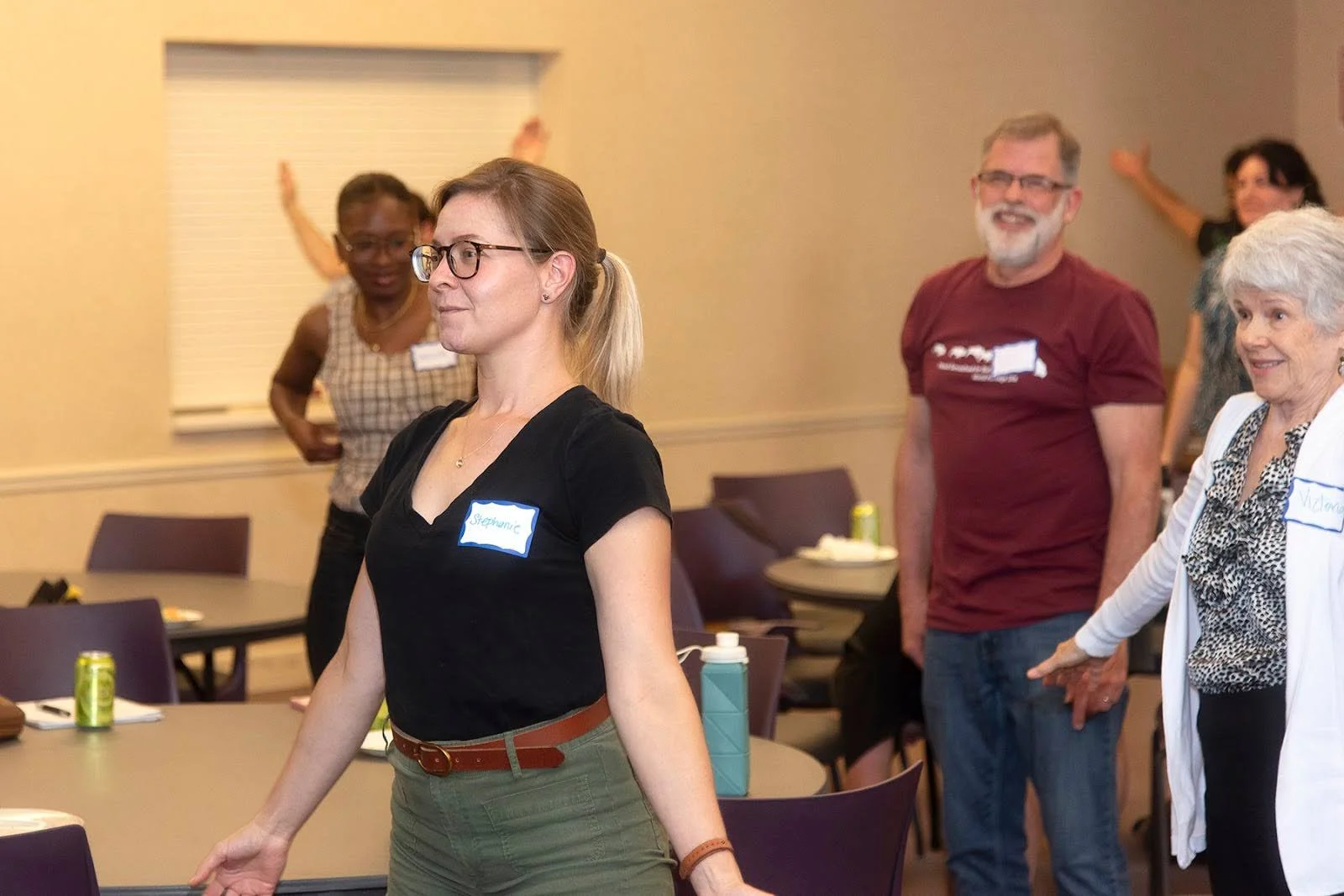
Regenerative Futures Lab participants engaging in an embodiment exercise and exploring ideas that shape climate action in June 2025
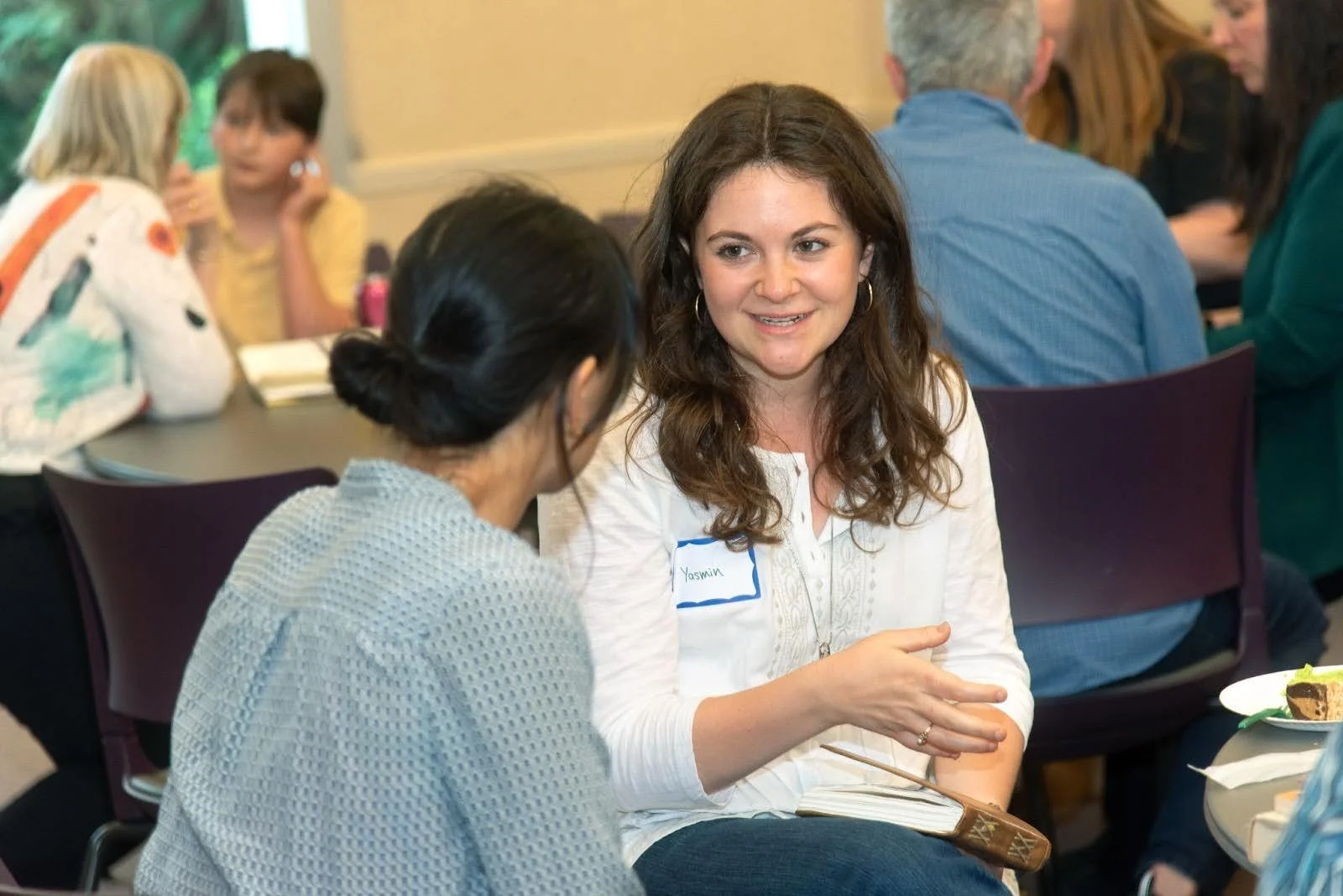
Participants in the May 2025 Regenerative Futures Lab interacting in pairs to explore and question the session’s “big idea” and build skills for co-creating a regenerative future
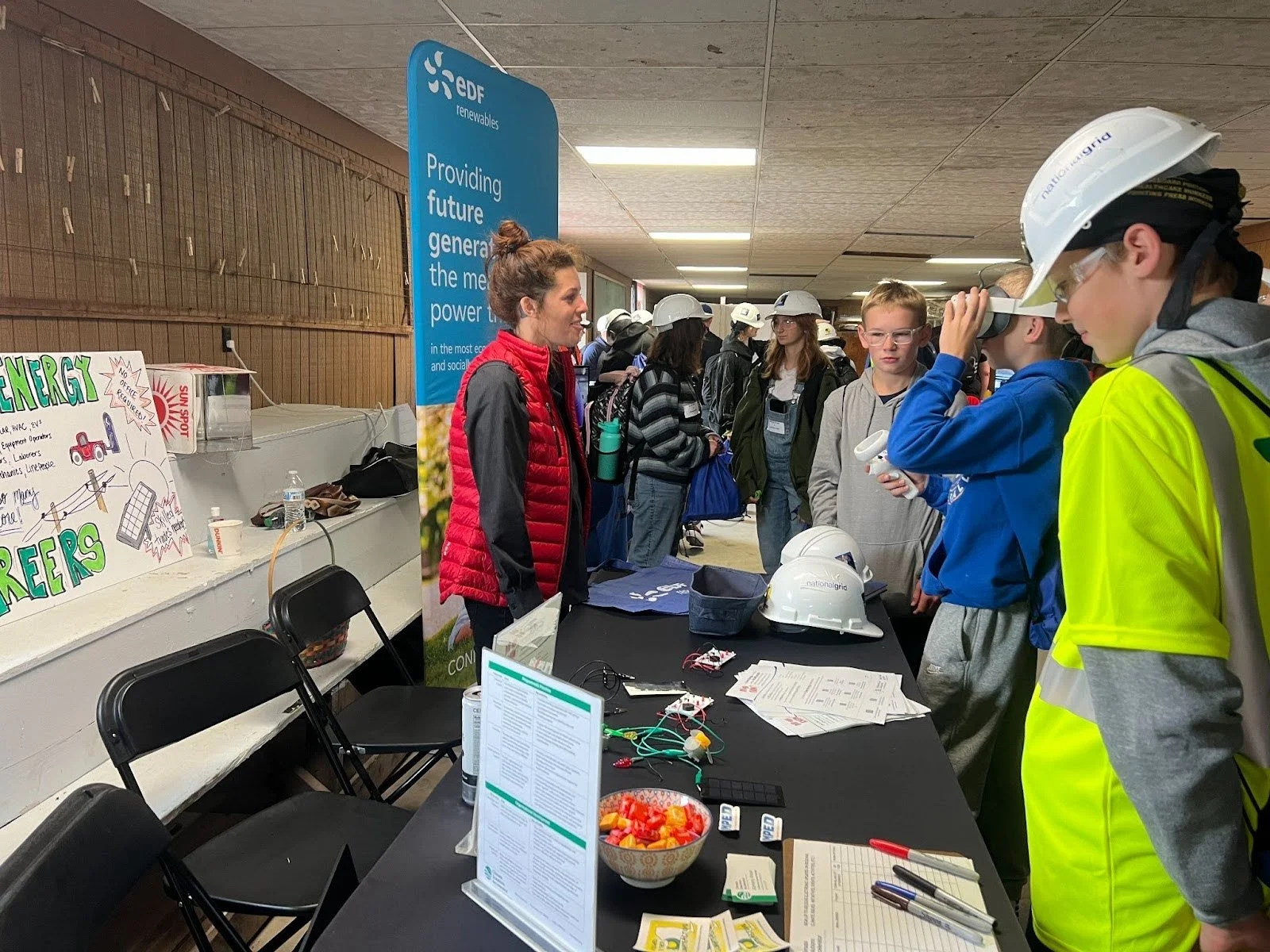
Haylee Ferrington of EDF Renewables and Renewable Energy Working Group, tabling at GLOW With Your Hands in September 2024.
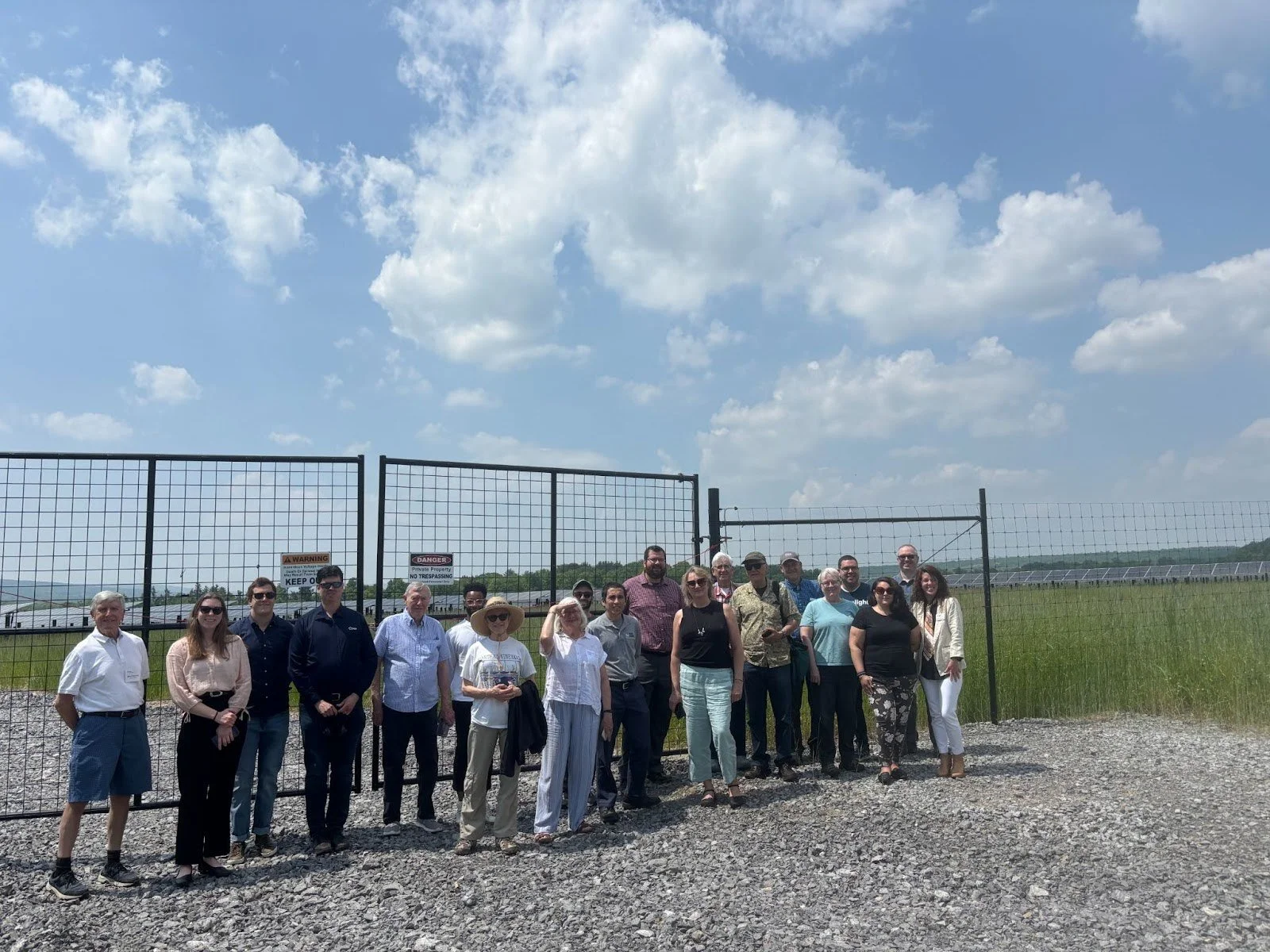
Steering Committee members touring the Morris Ridge Solar Farm in June 2025
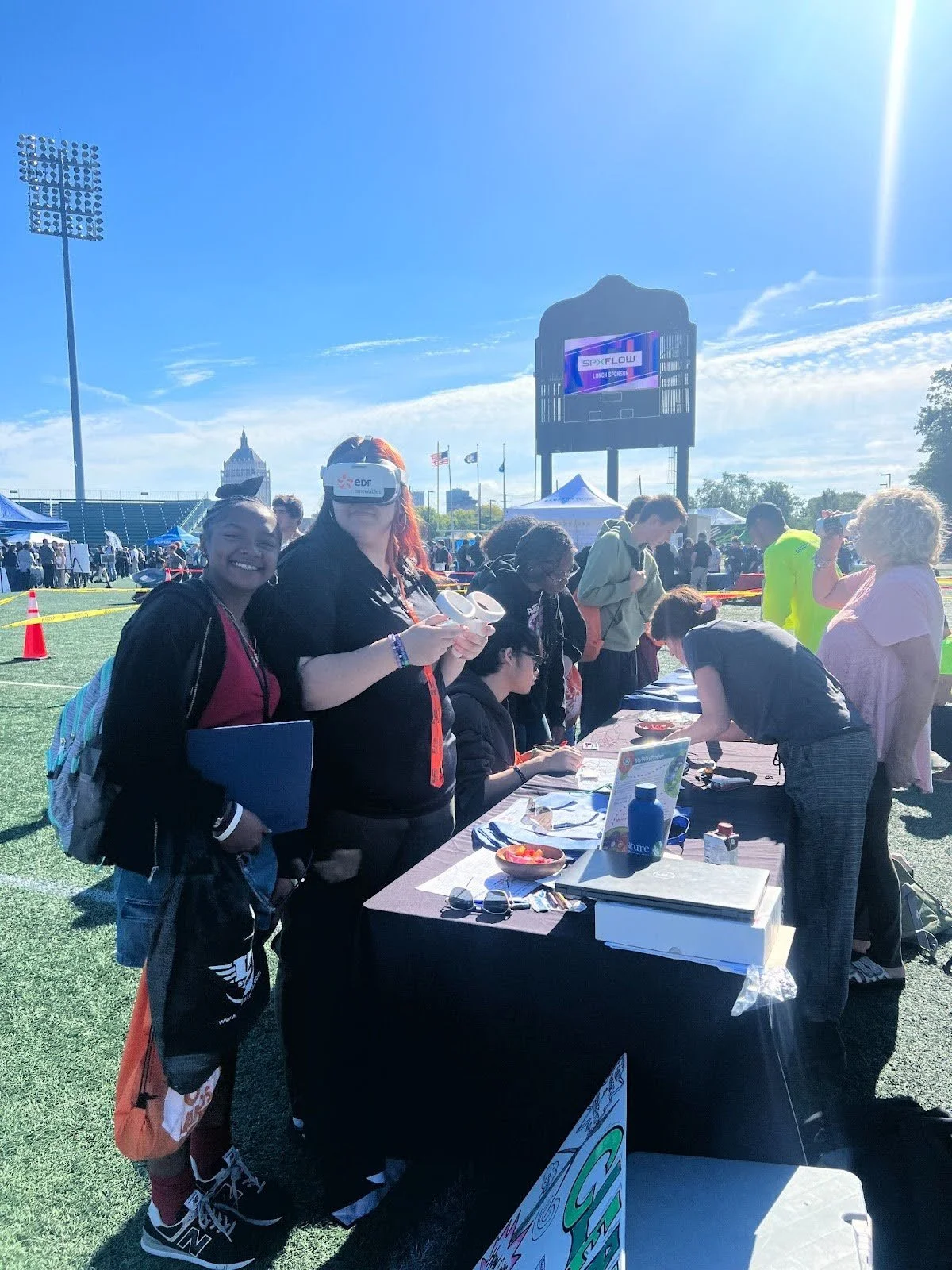
Community members exploring clean energy careers using EDF’s VR headset at ROC With Your Hands in October 2024.
In fiscal year 2024–2025, the Genesee-Finger Lakes Climate Collective advanced its mission of moving the Genesee-FLX Climate Action Strategy from paper to practice. With 26 participating organizations, the Steering Committee continued to embody cross-sector collaboration, even as it navigated member transitions. The collective took an important step in June with the soft launch of the Community Progress Monitor, a shared system of measurement built around 10 indicators. This tool will serve as both a data resource and an organizing framework, helping the region track progress and prioritize future actions.
The Steering Committee also launched the Regenerative Futures Lab, a new space for members and partners to examine the mental models shaping our economy and society. Through these conversations, participants explored how extractive systems create social and environmental harm and considered ways to build a more regenerative future.
Meanwhile, working groups advanced high-impact actions tied to the Climate Action Strategy. The Buildings Working Group partnered with the Urban Institute to study the split incentive problem in Rochester’s rental housing market. With more than 60 percent of Rochester residents renting, and even higher rates among BIPOC communities, the study represented a crucial first step toward ensuring energy efficiency upgrades are accessible and affordable for all. The Transportation Impact Collective continued to examine land use policies to promote sustainable growth, while the Renewable Energy Working Group pursued new tools such as VR (virtual reality) to make clean energy jobs more visible and accessible.
Looking ahead, the Climate Collective is focused on completing the split incentive study, deepening the use of the Community Progress Monitor, and expanding engagement in the Regenerative Futures Lab. With new members and strengthened working groups, the collective is positioned to accelerate progress toward a thriving region on a healthy planet.
